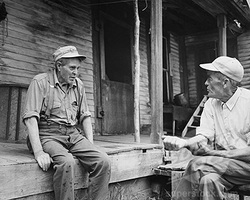
I came to discover that I am a unique individual -- all of us are unique persons. Our respective, unique personalities and quirks not only identify us but are a gift from God our creator. But our uniqueness can also cause us problems, especially when others do not understand us, or do not care to appreciate us. Henri Nouwen, in his book The Inner Voice of Love, writes (emphases added):
"When you discover in yourself something that is a gift from God, you have to claim it and not let it be taken away from you. Sometimes people who do not know your heart will altogether miss the importance of something that is part of your deepest self, precious in your eyes as well as God's. They might not know you well enough to be able to respond to your genuine needs. It is then that you have to speak your heart and follow your own deepest calling.[1]"
The temptation is very real for you to try to be what you think others want you to be, or what others have even told you how you should be, but that will only cause you problems. You must refuse to allow yourself to be molded by what others want you to be. Why? I can think of three reasons.
First, God created you as a unique human being. No one has ever been exactly like you and no one will ever exist exactly like you. Only you can be you in this life. To attempt to be any other person, or exist in any other manner, would betray God's special creation of you. When He redeemed you, by grace through faith in Christ, He did not destroy your unique character and personality -- He reformed and refashioned it (even if sinful desire remains) and He enjoys your unique existence.
Second, God wants to conform you to the image of His Son (Rom. 8:29). God, your creator, is not interested in you becoming like what others want you to be. He is ultimately interested in progressively transforming you into the image of His one and only Son, for your good and His glory. To attempt to be any other person, or exist in any other manner, would betray God's design for you in Christ.
Third, for the sake of honesty, you must be true to yourself. Were you to conform yourself to the wishes of others, you would be living a lie, and a lying life does not honor your creator. Attempting to be any other person, or to exist in any other manner, is to live a lie. What could go wrong for you if you tried? Nouwen writes:
"There is a part of you that too easily gives in to others' influence. As soon as someone questions your motives, you start doubting yourself. You end up agreeing with the other before you have consulted your own heart. Thus you grow passive and simply assume that the other knows better.[2]"
You will become increasingly more unstable, incapable of making your own decisions, and codependent upon others for much of the issues of life. You will become an easy target upon whom others can prey; be taken advantage of; lose your sense of self-worth and dignity; and become an object that is neglected, dismissed, and abused by others. Know thyself, be true to thyself, and be faithful to your creator who created you in His image -- who recreated you in Christ's image.
Finally, recall the words of St Paul to the Galatians: "Am I now seeking human approval, or God's approval? Or am I trying to please people? If I were still pleasing people, I would not be a servant of Christ" (Gal. 1:10 NRSV). Though our context may differ from that of Paul, we learn that even he had to discover and embrace who he was, in Christ, and not to let people intimidate him or dictate the course of his life. He had to be true to the Lord, true to the Church, and true to himself. May all of us learn the value of being true.
__________
[1] Henri J.M. Nouwen, The Inner Voice of Love: A Journey Through Anguish to Freedom (New York: Image Books, 1998), 44.
[2] Ibid.
This post was written by Anonymous. You can find the original blog post with comments, here: http://credendum.weebly.com/1/post/2014/04/know-thyself-and-be-true.html









 RSS Feed
RSS Feed